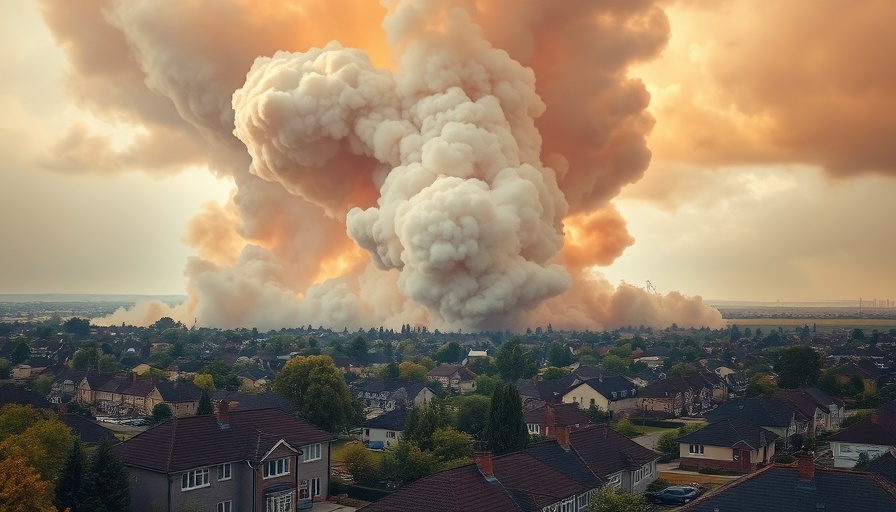
Emergency Preparedness: Essential Steps Before Evacuation
When faced with the necessity of evacuation, planning and preparation can make a significant difference in ensuring safety and well-being. Whether it’s a natural disaster, health crisis, or other emergencies, knowing what to do beforehand can alleviate stress and create a more organized response. Here are ten crucial things that everyone should consider before vacating their homes.
1. Stock Up on N-95 Masks
The unpredictability of environmental hazards such as wildfires, floods, or health outbreaks necessitates proper protection. One essential item is the N-95 mask, which shields against airborne pollutants or pathogens. In previous years, masks became vital to mitigate exposure to smoke and disease. With recent outbreaks of measles in various states, understanding how contagious diseases spread highlights the importance of adding masks to your emergency supplies. In instances where evacuation becomes necessary, being prepared with adequate respiratory protection can significantly reduce health risks.
2. Sign Up For Emergency Notification Services
In moments of crisis, receiving real-time updates is crucial for making informed decisions. Registering for local emergency notification services ensures that you stay aware of alerts relating to weather, evacuations, or health advisories. Many municipalities offer apps and text alerts that provide instant updates, which can be lifesaving when timing is critical.
3. Offer a Place for Others to Stay
Evacuations may leave your friends or neighbors in need of shelter. If you find yourself in a situation where you are safe, consider opening your home to those affected by emergencies. This gesture not only fosters community support but may also help manage the emotional stress that accompanies evacuations. Providing a place for others can create a sense of solidarity during challenging times.
4. Prepare Yourself Mentally
The adrenaline rush during an evacuation can be overwhelming. To mitigate anxiety, take time to familiarize yourself with your evacuation plan ahead of time. Knowing what to expect can help ground you amidst chaos. Engage in mental practices such as visualization or deep-breathing exercises to bolster your focus and readiness.
5. Purchase a Battery Operated Radio
In an age dominated by smartphones, it’s easy to overlook traditional communication tools such as battery-operated radios. These devices can keep you connected and informed if your phone fails due to lack of service or battery. Staying tuned to emergency broadcasts can keep you updated on safety instructions and recovery efforts following an evacuation.
6. Gather Important Documents
Before leaving your home, ensure you have essential documents secured in a waterproof container. This should include IDs, insurance papers, medical records, and any other vital files. Being prepared with these documents can facilitate post-evacuation processes such as insurance claims or medical care, reducing stress in the aftermath of an emergency.
7. Check Your Emergency Supplies
Regularly updating your emergency supplies is crucial. Check your first-aid kit, food supplies, and medications to ensure everything is current and in adequate quantity. Additionally, review your water storage and ensure that your bottled water is not expired. Having a well-stocked supply reduces the risk of running out of essentials when you need them most.
8. Keep a Family Emergency Plan
Every household should establish a family emergency plan that outlines meeting points, communication methods, and roles for each family member during an evacuation. Conduct practice drills to ensure everyone is familiar with the procedure. This preparedness can save valuable time and reduce the panic in the event of an actual evacuation.
9. Secure Your Home
Before you evacuate, take steps to secure your home. Lock doors and windows, turn off utilities if instructed to do so, and unplug appliances to decrease fire risks. These simple actions can help prevent further damage and loss when you're away.
10. Plan for Pets
Don't forget about your furry family members! Make arrangements for pet care during emergencies, and always keep a pet emergency kit ready. Having food, water, medication, and identification for your pets ensures they are cared for throughout the evacuation process.
By following these crucial steps, you can minimize risks and ensure you're prepared for any emergency situation. Remember, it’s always better to prepare now than to rush later. Preparing ahead not only boosts your safety but also sets a positive example for your community.
As an emergency preparedness expert, I encourage readers to print this list and integrate it into your daily readiness routine. Knowledge and planning go a long way in effective emergency response!
Stay safe and informed!
 Add Row
Add Row  Add
Add 




 Add Row
Add Row  Add
Add 

Write A Comment